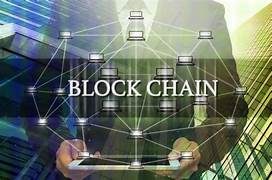Blockchain Technology: A New Era of Transaction Processing
In the digital age, technological advancements have consistently reshaped how businesses and individuals manage and process transactions. Among these breakthroughs, blockchain technology stands out as a revolutionary force. Originating as the foundational framework for Bitcoin, blockchain has since evolved into a multifaceted technology, impacting industries far beyond cryptocurrencies. With its potential to transform transaction processing, blockchain promises a new era characterized by security, transparency, and efficiency.
This article explores the fundamentals of blockchain, its advantages over traditional systems, and its transformative impact on industries.
Understanding Blockchain Technology
At its core, blockchain is a distributed ledger technology (DLT) that records transactions across a network of computers in a secure and transparent manner. Unlike traditional databases, which are centralized and rely on intermediaries, blockchain operates on a decentralized network.
How Blockchain Works
- Blocks: Each block contains a collection of transactions, along with a unique cryptographic hash and the hash of the previous block, forming a chain.
- Decentralization: The ledger is maintained across multiple nodes (computers) in the network, ensuring that no single entity has control.
- Consensus Mechanisms: Transactions are validated through consensus algorithms like Proof of Work (PoW) or Proof of Stake (PoS), ensuring accuracy and trustworthiness.
- Immutability: Once recorded, transactions cannot be altered, creating a permanent and tamper-proof record.
This combination of features makes blockchain a secure and efficient system for processing transactions.
Advantages of Blockchain in Transaction Processing
1. Enhanced Security
Blockchain’s decentralized nature and cryptographic protocols provide robust protection against fraud and cyberattacks. Each transaction is verified and encrypted, ensuring data integrity. The immutability of the ledger further prevents unauthorized alterations.
2. Transparency and Accountability
Every participant in a blockchain network has access to a copy of the ledger, ensuring complete transparency. This visibility fosters trust among parties, making blockchain ideal for applications where accountability is critical, such as supply chain management and financial auditing.
3. Reduced Costs
By eliminating intermediaries, blockchain reduces transaction fees and operational costs. In traditional systems, banks, payment processors, and other third parties charge fees for their services. Blockchain streamlines the process, enabling peer-to-peer transactions.
4. Faster Transactions
Traditional banking and financial systems often involve delays due to manual processes and cross-border regulations. Blockchain enables near-instantaneous transactions, even across international borders, revolutionizing global commerce.
5. Decentralization and Resilience
Decentralization removes the reliance on a central authority, reducing the risk of single points of failure. This makes blockchain networks highly resilient to outages and disruptions.
Applications of Blockchain in Transaction Processing
Blockchain technology is already making waves across various sectors, transforming how transactions are processed and recorded.
1. Financial Services
In banking and finance, blockchain is streamlining processes such as payments, loans, and trading.
- Cryptocurrencies: Digital currencies like Bitcoin and Ethereum operate on blockchain, enabling secure, decentralized transactions.
- Cross-Border Payments: Blockchain eliminates intermediaries in international transfers, reducing costs and delays. Ripple, for instance, leverages blockchain for real-time gross settlement systems.
- Smart Contracts: Self-executing contracts on blockchain platforms like Ethereum automate agreements, reducing paperwork and disputes.
2. Supply Chain Management
Blockchain enhances visibility and traceability in supply chains. By recording every step of a product’s journey on the blockchain, companies can ensure authenticity, prevent fraud, and respond quickly to recalls. Walmart and IBM have collaborated on a blockchain solution for food traceability.
3. Healthcare
In healthcare, blockchain ensures secure and efficient data sharing. Patients can have control over their medical records, while providers can access accurate information in real time. This reduces errors and improves care quality.
4. Real Estate
Blockchain simplifies property transactions by digitizing records and automating processes. Smart contracts can handle agreements, while blockchain-based registries prevent fraud and enhance transparency in ownership records.
5. Voting Systems
Blockchain has the potential to revolutionize voting by creating secure and tamper-proof systems. It can ensure that votes are accurately recorded and counted, addressing issues like voter fraud and transparency.
6. Intellectual Property
By providing a decentralized ledger for ownership and licensing, blockchain helps creators protect their intellectual property rights. Platforms like Audius use blockchain to empower artists in the music industry.
Challenges and Limitations
Despite its potential, blockchain faces several challenges that must be addressed for widespread adoption:
1. Scalability
Current blockchain networks struggle to handle large transaction volumes. For instance, Bitcoin can process only a handful of transactions per second compared to traditional payment systems like Visa.
2. Energy Consumption
Consensus mechanisms like PoW are energy-intensive, raising concerns about environmental sustainability. Efforts are underway to develop more energy-efficient alternatives like PoS.
3. Regulatory Uncertainty
Governments and regulators are still grappling with how to classify and govern blockchain-based systems. The lack of clear regulations can hinder adoption and innovation.
4. Integration Challenges
Integrating blockchain with existing systems requires significant effort and investment. Organizations need to redesign processes and train personnel, which can be a barrier to adoption.
5. Security Risks
While blockchain itself is secure, vulnerabilities in applications built on top of it can expose systems to attacks. Smart contract bugs and inadequate key management are common concerns.
The Future of Blockchain in Transaction Processing
The potential of blockchain technology is vast, and ongoing advancements are addressing many of its current limitations.
1. Layer 2 Solutions
Technologies like the Lightning Network aim to improve scalability by processing transactions off-chain while maintaining the security of the main blockchain.
2. Interoperability
Efforts to improve interoperability between different blockchains will enable seamless communication and data sharing, expanding the use cases of blockchain technology.
3. Green Blockchain Initiatives
The shift towards energy-efficient consensus mechanisms, such as Ethereum’s transition to PoS, is making blockchain more sustainable and environmentally friendly.
4. Integration with Emerging Technologies
Blockchain is increasingly being integrated with other technologies like artificial intelligence (AI) and the Internet of Things (IoT). For example, IoT devices can use blockchain to automate secure machine-to-machine transactions.
5. Central Bank Digital Currencies (CBDCs)
Governments worldwide are exploring the development of CBDCs, which are blockchain-based digital versions of fiat currencies. These could reshape monetary systems, enhancing transparency and reducing transaction costs.
Conclusion
Blockchain technology represents a paradigm shift in transaction processing. By offering unprecedented security, transparency, and efficiency, it has the potential to revolutionize industries and redefine how value is exchanged. While challenges remain, ongoing advancements and innovations are paving the way for a future where blockchain becomes an integral part of our digital infrastructure.
As we navigate this new era, businesses, governments, and individuals must work together to harness the full potential of blockchain while addressing its challenges. With the right approach, blockchain technology can usher in a more secure, efficient, and inclusive global economy.


